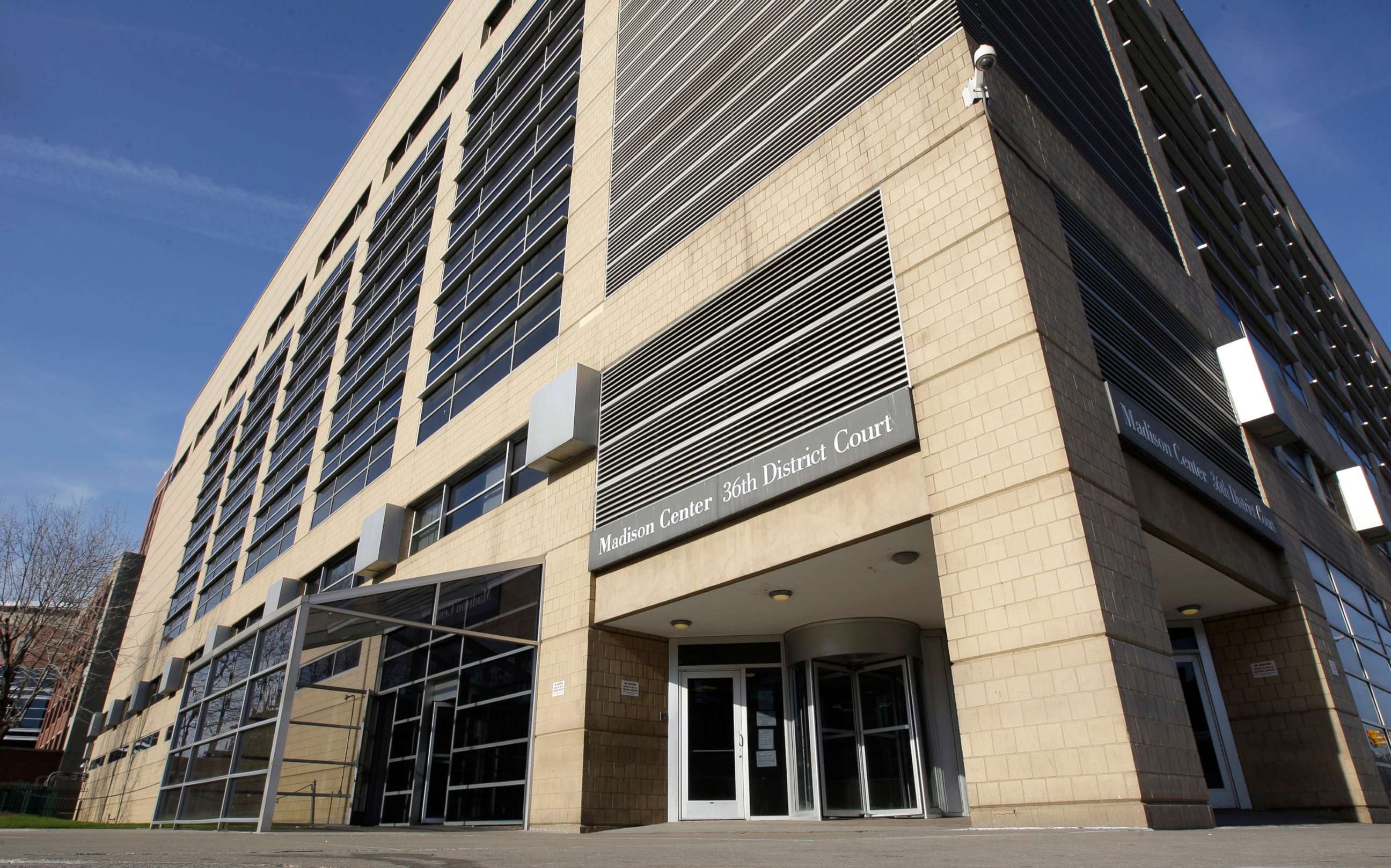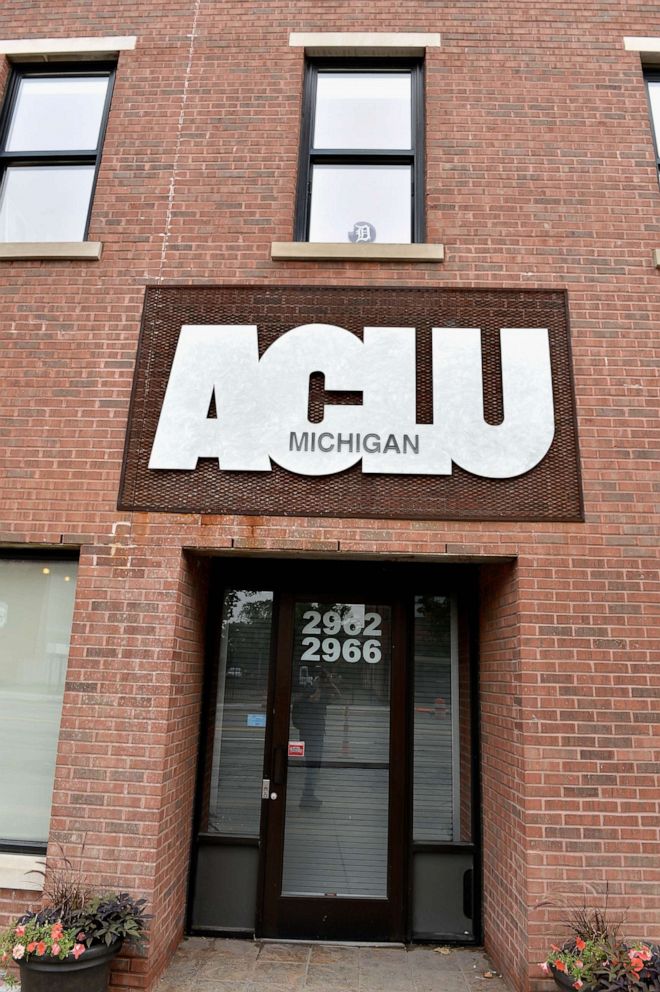Michigan state court agrees to limit use of cash bail in class action suit settlement
The lawsuit claimed a person's freedom depended on the ability to pay cash bail.
The American Civil Liberties Union of Michigan and The Bail Project settled a class action lawsuit with Detroit's 36th District Court, the largest in the state, to limit the use of cash bail in cases where the individual does not pose a danger to the community and is not a flight risk.
The agreement would ensure that people would not be jailed because they cannot afford to pay cash bail, with the court limiting its use of cash bail so that it "rarely" results in someone's detention, the ACLU of Michigan said in a statement.
"People will not be detained unless, after reviewing evidence presented, a judge determines that releasing a person would create an unmanageable flight risk or danger to the public," according to the ACLU.
The settlement resolves a federal lawsuit filed in 2019 on behalf of seven Black residents from Detroit challenging the state's bail system. In the lawsuit, they claimed a person's freedom was dependent on their ability to afford bail and that defendants' right to council was violated because people accused of a crime were not provided counsel during arraignment hearings when their bail was set, according to the ACLU.
"This is a great victory that I’m extremely proud to be a part of. Now because of this change, this historical agreement, thousands of us will be spared the hardships of being locked up just because we are poor. We’ve succeeded in making the criminal legal system in Detroit more fair and just," Starmanie Jackson, one of the plaintiffs, said in a statement.

According to the agreement, the court will have to examine a defendant's ability to pay bail and determine, on the record, how much they can afford to pay in any case where cash bail is imposed.
Anyone whose income is 200% or less of the federal poverty line is considered not able to afford to pay cash bail, the agreement says. The federal poverty line for a family of four is $55,500.
The use of cash bail to detain criminal defendants while they await trial results in the disproportionate detention of defendants of color, according to the ACLU.
“This is a great day for justice in Detroit and Michigan. Thousands of people in Detroit will no longer be languishing behind bars simply because they are too poor to pay for their freedom. The cash bail system has devastating consequences on communities, particularly communities of color," Phil Mayor, a senior staff attorney at ACLU Michigan, said in a statement.
Defendants given bail that is supposed to be "affordable" are entitled to a bail redetermination hearing within 48 to 72 hours where they can challenge the decision to detain them, according to the agreement.
Everyone going through an arraignment in the court will also be entitled to court-appointed counsel unless they waive that right or retain a private attorney, according to the agreement.

Arraignment counsel will be required to fill out a form stating the defendant's financial situation to ensure they have information necessary to make arguments about the individual's ability to pay bail, according to the agreement.
All attorneys appointed to the court will be required to get four hours of training on how to handle a bail hearing, bail determination procedures and the terms of the agreement, according to the agreement.
All defense attorneys who will be appearing in the court will begin their training next week and Judges and magistrates will begin their training in the next few weeks, 36th District Court Chief Judge William McConico told ABC News in an interview.
McConico said he is "Enthusiastically looking towards implementing this settlement."
The agreement states that defendants who miss a hearing for most misdemeanor cases will have their hearing automatically rescheduled instead of a warrant being issued for their arrest the first time they miss a hearing.
It will also require the court to report release rates to the plaintiffs on a bimonthly basis. Per the agreement, 97% of people accused of misdemeanors, 90% of people accused of felonies and 80% of people accused of certain serious felonies should be released without cash bail or with an amount of bail they can afford within 24 hours, according to the agreement.
While McConico said the court's current release rates are somewhat near these thresholds for traffic and misdemeanors, it is "nowhere near the numbers in the settlement agreement" for felonies.
The agreement does not a set a release rate for people accused of crimes including murder, treason, first degree criminal sexual conduct, armed robbery, kidnapping, or who are accused of committing a violent felony while already released on bond or probation/parole, or who are accused of committing a violent felony and have twice been convicted of violent felonies in the previous 15 years, according to the agreement.
This agreement will last from two to five years. If the court successfully meets the release rates, the agreement will expire in two years. But, it will be extended if the court misses any release rates.
"I am proud that 36th District Court, thanks in large part to the work of Judge Larry Williams, collaborated to create a more equitable justice system. While other cities took a more hostile posture, we felt it was important to work together to find a solution," McConico said in a statement.
While McConico has not spoken to judges from other courts in Michigan, he hopes implementation of this agreement will encourage other courts in the state to implement similar cash bail policies.
"If we can do it in Detroit you can do it anywhere in the state," McConico said.



